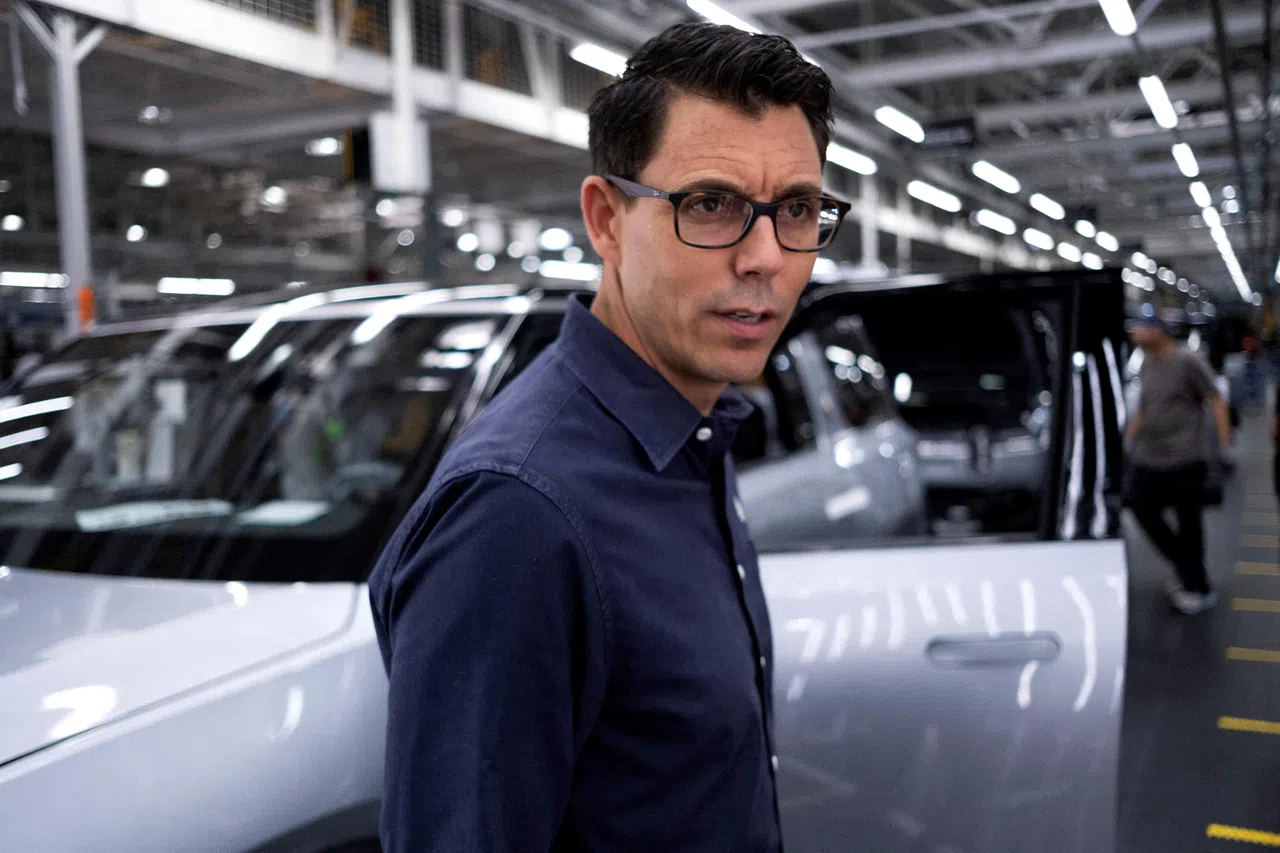[ad_1]
MATERIAL cost of Rivian’s second-generation R1 electric SUVs and pickups will be 20 per cent lower than the current version, CEO RJ Scaringe said on Thursday (Jun 27), after it overhauled its manufacturing plant and removed vehicle parts to slash cost.
Costs will go down further as Rivian continues to make improvements, Scaringe said at the company’s first investor day.
Shareholders have been eagerly looking for details on the company’s push to profitability as the EV industry tackles a sharp slowdown in demand.
The CEO’s comments come days after Volkswagen said it would invest up to US$5 billion in Rivian as part of a joint venture for its EV architecture and software.
The move is widely seen as a “vote of confidence” in the American automaker’s prospects as it looks to build less expensive R2 and R3 crossovers to attract masses and is expected to help reduce operating expenses with scale.
“The VW deal gives Rivian the potential to boost cashflows in the long run via the licensing of technologies and architecture to VW’s various brands – particularly the high-end resilient-volume ones such as Audi and Porsche,” said Sandeep Rao, analyst at Leverage Shares.
BT in your inbox

Start and end each day with the latest news stories and analyses delivered straight to your inbox.
Rivian shut down its plant at Normal, Illinois for three weeks in April to make the changes, including simplifying processes and removing equipment at the facility, and removing over 500 parts from the vehicles in an effort to make them cheaper to build.
A similar exercise last year helped Rivian cut 35 per cent in material cost from its electric vans, Scaringe told Reuters last week.
Amazon.com-backed Rivian lost about US$39,000 per vehicle sold in the first quarter, but it reiterated that the company will post its first quarterly gross profit in the fourth quarter.
The company’s presentation during investor day also teased five new models under wraps, with three vehicles under the “affordable mass market” category.
Demand for electric vehicles has faltered amid high borrowing costs, and as buyers turn to cheaper petrol-electric hybrid vehicles.
Rivian expects to produce between 9,100 and 9,300 units in the second quarter and hand over between 13,000 and 13,300 vehicles to customers in the April-to-June period, it said in a presentation for the investor day.
Wall Street had expected quarterly deliveries of 10,282 units and production of 9,369 vehicles, when the company reports quarterly figures on Jul 2, according to analysts polled by Visible Alpha.
Rivian’s shares fell more than 6 per cent after their best-ever one-day gain of 23 per cent on Wednesday. The company has stuck to its production forecast of 57,000 for the year – roughly the same as 2023.
The demand slowdown has hit even market leader Tesla, which is expected to report its first drop in annual sales this year. It has slashed prices and is offering incentives to sell more vehicles.
Rivian is on stronger footing than most EV startups. Some of its peers such as Fisker have filed for bankruptcy.
Rivian had nearly US$6 billion of cash and cash equivalents at the end of the March quarter.
To save cash, Rivian plans to start making the R2 vehicles at its existing Illinois facility and instead of a planned plant in Georgia. The company is also renegotiating supplier contracts and building some parts in house to better control costs. REUTERS
[ad_2]
Source link







